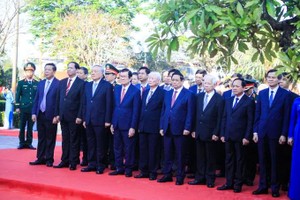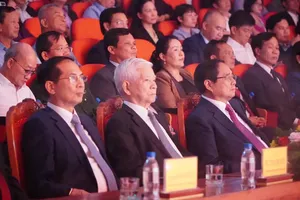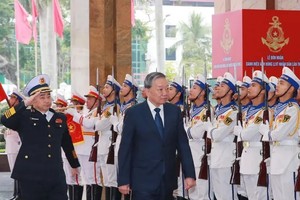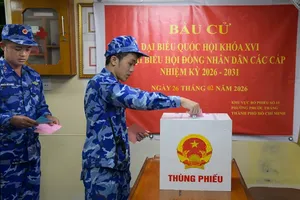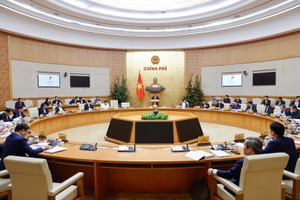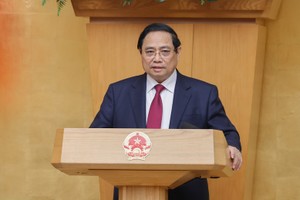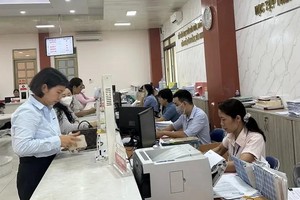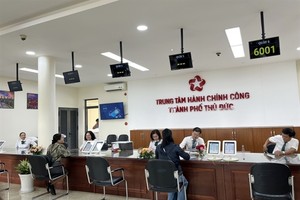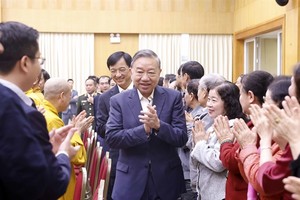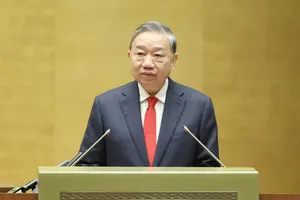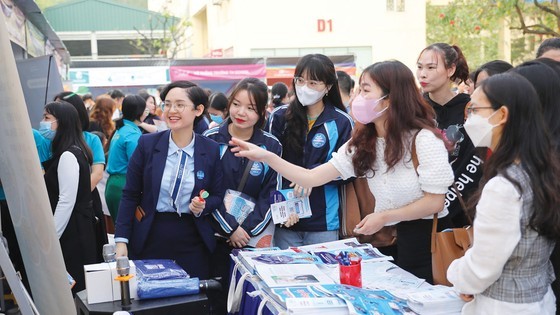 |
Students seeking job opportunities at a job fair (Photo: SGGP) |
After the Politburo introduced Conclusion No.86-KL/TW on January 24, 2014 about policies to attract graduates with excellent results and outstanding scientists into the public sector, the Government released Decree No.140/2017/ND-CP on December 5, 2017 to specify that conclusion. The Finance Ministry was the first to hold the hiring procedure accordingly, predicting to recruit 88 people. Yet in reality, only 51 were employed.
Deputy Director Bui Quang Duong of the Ha Tinh Province Department of Home Affairs informed that from 2019-2022, the province organized four rounds of hiring civil servants and public employees in compliance with Decree No.140 for 213 positions. 48 out of 60 applicants were eligible to enter the recruitment process, and 32 were hired. Ha Tinh Province also adopted policies to attract the talented to work long term there. However, only the healthcare sector was successful in this process.
Since 2019, Quang Ninh Province has employed 17 people (2 civil servants and 15 public employees) according to Decree No.140. Besides, the province has been able to hire 21 lecturers with a doctorate or master’s degree graduating from a foreign university to work in Ha Long University thanks to the financial support of VND61 billion (US$2.6 million).
The HCMC Department of Home Affairs reported that after 5 years carrying out the above Decree as well as its own policy in this matter, it still has not been able to hire any outstanding scientists or excellent graduates. It pointed out that these people usually wish to pursue higher degrees with scholarship offered thanks to their excellence. In addition, the city finds it hard to compete with the private sector as to income and promotion prospects.
Being the capital, Hanoi now accommodates 65 percent of professors, associate professors, and doctors in Vietnam. Sadly, the city admitted that its policy to attract the talented is still not appealing at all. Deputy Secretary of Hanoi Party’s Committee Nguyen Van Phong said that when the Capital Law 2012 came into effect, Hanoi adopted a talent attraction policy on 65 subject groups, including valedictorians, doctors trained at home and abroad, resident doctors, second-degree medical specialists, outstanding teachers, excellent sportspeople, artists, scientists.
Since 2003, Hanoi has hired 200 valedictorians into different positions, accounting for 10 percent of all valedictorians. The rest chose to continue their studying, to work at their university, or to come to major corporations.
The applicable regulations stipulate that in case of failing the rank promotion test or after 5 years enjoying extra financial benefits, all civil servants hired under Decree No.140 are not entitled to salary preferential benefit. Some even face slower salary rise speed compared to their colleagues who were hired by the regular method. This is not at all competitive to attract the talented.
Another issue that needs considering is a specific mechanism or policy to assign these outstanding people to suitable positions.
What is also worth mentioning is the too strict recruitment requirements to hire this group. For instance, out of 22 excellent graduates applying for civil servant positions in compliance with Decree no.140, only 14 are eligible for the interview round because they have distinct academic results. Others just reach the ‘Good’ level. It is better to downgrade this criterion to the ‘Good’ level to welcome more talented people.
When being asked about this matter in the 4th session of the 15th National Assembly, Minister of Home Affairs Pham Thi Thanh Tra said that it is impossible to compare the benefits offered by the public sector with those by the private ones when attracting brilliant human resources. She promised that in the upcoming time, the Home Affairs Ministry is going to reevaluate results of Decree No.140 in order to develop a suitable strategy for hiring more talented people in the public sector. Based on that, the Government will introduce more appealing policies.
Deputy Director Chuc Hanh of the IT Center under the Transport Ministry shared that her center usually posts hiring announcements for skillful IT engineers. Sadly, owing to unattractive work benefits, the center can rarely recruit high-quality young engineers. With a base salary of only VND5 million ($213) a month, they soon say goodbye to the center for better positions with a higher salary.
Dr. Nguyen Tien Dinh – former Deputy Minister of Home Affairs – said that besides appealing work benefits, it is essential for recruiters to assign them to positions suitable for their professional skills, showing respect and trust towards them.

